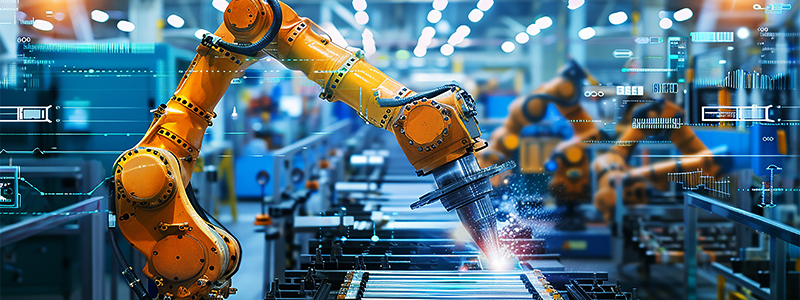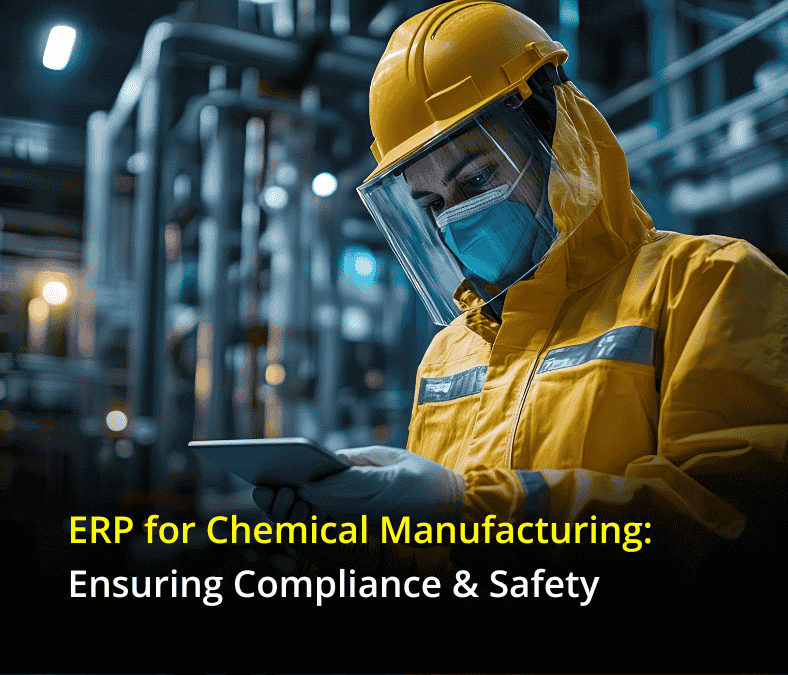The Imperative for Innovation in Manufacturing
Disruption, Complexity & Customer Expectations
Global supply chain volatility, rising customer demands, and rapid technology shifts require manufacturers to evolve continuously.
Take, for example, the semiconductor sector, where every delay in component delivery can disrupt global production lines. Staying competitive now demands not just cost reduction but product diversification, predictive servicing, and participation in digital ecosystems.
Legacy systems and siloed applications limit visibility, slow decision-making, and increase risk. Without a unified, intelligent backbone, innovation is often stifled before it starts.
The Role of ERP in Enabling Innovation
An ERP becomes the central nervous system of a manufacturing organization when it evolves from a transactional hub to a strategic enabler.
Through real-time data, automation, predictive insights, and integration with IoT, AI, and analytics, ERP empowers leadership and teams to test ideas, monitor outcomes, and iterate rapidly.
In effect, manufacturing innovation in ERP means the system not only supports what you do today but helps you design what you’ll do tomorrow.
Core Capabilities That Make ERP Critical for Manufacturing Innovation
Below are foundational capabilities that transform ERP systems from operational tools into innovation catalysts.
Real-Time Visibility & Unified Data
To innovate, manufacturers need cross-functional transparency, from materials and machines to supply chain and quality.
A modern ERP aggregates this data into a single source of truth, enabling scenario planning, trade-off analysis, and swift decision-making.
Embedded Analytics & Predictive Intelligence
Predictive analytics modules forecast demand, anticipate equipment failures, and optimize inventory.
For instance, an automotive parts manufacturer can use AI-driven ERP analytics to predict part shortages weeks before they affect assembly, reducing downtime and excess stock simultaneously.
Automation & Process Orchestration
Innovative ERP solutions automate repetitive processes, from order processing and material requisition to quality checks, minimizing human error and freeing teams to focus on creative problem-solving.
This orchestration ensures experimentation can scale without chaos, making innovation sustainable.
Flexibility & Configuration
The best ERP for manufacturing industry allows effortless process reconfiguration, essential when introducing new product lines or plant layouts.
Rule-based engines, variant management, and modular architectures make adaptation fast and cost-effective.

How ERP Drives Manufacturing Innovation in Practice
Accelerating Product Development & Time-to-Market
When ERP integrates with PLM and design systems, change notifications and BOM updates flow automatically into production.
For example, an industrial machinery manufacturer reduced prototype-to-production time by 25% after aligning ERP with its design workflows, eliminating manual re-entry errors and delays.
Predictive Maintenance & Zero-Unplanned Downtime
IoT-enabled ERP systems can identify equipment anomalies before failure.
This predictive maintenance approach helps plants shift from reactive fixes to condition-based upkeep, maximizing uptime and energy efficiency.
Mass Customization & Variant Management
Markets today demand personalized products at scale. ERP systems enable variant logic and configurable BOMs, helping manufacturers deliver customization without chaos, a cornerstone of manufacturing innovation.
Supply Chain Resilience & Adaptive Sourcing
AI-powered ERP models detect potential disruptions early, from raw material shortages to shipping delays and recommend alternative suppliers or routes. This transforms ERP from a passive database into a real-time control tower.
Quality Innovation & Feedback Loops
When quality data, inspection records, and customer returns flow back into ERP, patterns emerge.
This allows teams to identify root causes, refine processes, and innovate quality, turning every feedback loop into a source of improvement.
The Future of Manufacturing ERP & Innovation
The next era of ERP innovation will converge with emerging technologies such as:
- Generative AI & Autonomous Planning: Systems that propose optimized workflows and simulate outcomes automatically.
- Digital Twins & Simulation-as-a-Service: Virtual factory clones to test new product setups without disruption.
- AR/VR Interfaces: Visualizing ERP insights directly on the production floor.
- Edge Computing: Instant inference near machines, coordinated through ERP.
- Sustainability Integration: Tracking emissions, material reuse, and lifecycle metrics from within the ERP ecosystem.
In this future, ERP will no longer support operations. It will co-pilot them, guiding innovation safely and continuously.
Conclusion
In today’s competitive market, agility and differentiation drive success, and ERP software stands as the strategic core of innovation. To unlock its full potential, choose an ERP that aligns with your operational complexity and innovation goals. Integrate automation, predictive insights, and strong data governance from the start. Pilot, measure, and scale effective strategies. When ERP evolves from a system of record to a driver of innovation, manufacturers can re-imagine products, processes, and business models—achieving continuous improvement and a lasting competitive edge.







